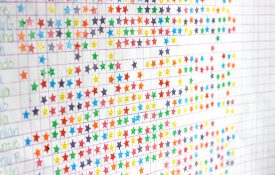-
Center for Advanced Study in the Behavioral Sciences
The Center for Advanced Study in the Behavioral Sciences (CASBS) at Stanford University is now accepting applications for residential fellowships for the 2016-17 academic year. Imagine a place where great minds are brought together to confront the problems of the day, where original interdisciplinary thinking is the norm, where extraordinary collaborations become possible, where ideas can change our world. CASBS was founded as such a place in 1954 and remains so today. CASBS has hosted generations of scholars and scientists who come for a year as fellows.
-
What the Law Intends Versus What the Law Delivers
Past APS Board Member Barbara A. Spellman of the University of Virginia serves as a discussant during the symposium, “Distributing Justice: What the Law Intends Versus What the Law Delivers.” Chaired by Elizabeth Gilbert, also of the University of Virginia, the symposium focused on how the legal system distributes punishment. Speaker Paul Robinson of the University of Pennsylvania discussed research on the influence of punishments that “fit the crime” compared with punishments designed to deter crime.
-
Illuminating Mechanisms of Repetitive Thinking
The ability to engage in mental time travel -- to delve back into past events or imagine future outcomes -- is a unique and central part of the human experience. And yet this very ability can have detrimental consequences for both physical and mental well-being when it becomes repetitive and uncontrolled. A special series of articles in the July 2015 issue of Clinical Psychological Science (CPS) investigates this kind of repetitive thinking, exploring the core psychological processes that underlie maladaptive thought processes like worry and rumination.
-
Age Is Just a Number
People tend to proceed through life trying to act their age. But the pioneering research of Ellen Langer suggests that adopting the attitude of a younger person may actually have health benefits. In a classic 1981 study, she had old men live in a retreat that was retrofitted to look like 1959, while they pretended that they were living in that year. She and her colleagues found that the men experienced improvements in vision, strength, and other abilities, and that they actually looked younger as well. Langer’s mind-body research indicates that just as social cues can make us feel old, other social cues can make us feel and act young.
-

At What Age Does Hard Work Add a Shine to Lousy Prizes?
Putting in a lot of effort to earn a reward can make unappealing prizes more attractive to kindergartners, but not to preschoolers, according to research published in Psychological Science, a journal of the Association for
-
New Research From Psychological Science
Read about the latest research published in Psychological Science: Turbulent Times, Rocky Relationships: Relational Consequences of Experiencing Physical Instability Amanda L. Forest, David R. Kille, Joanne V. Wood, and Lindsay R. Stehouwer Can physical instability lead to instability in relationships?

